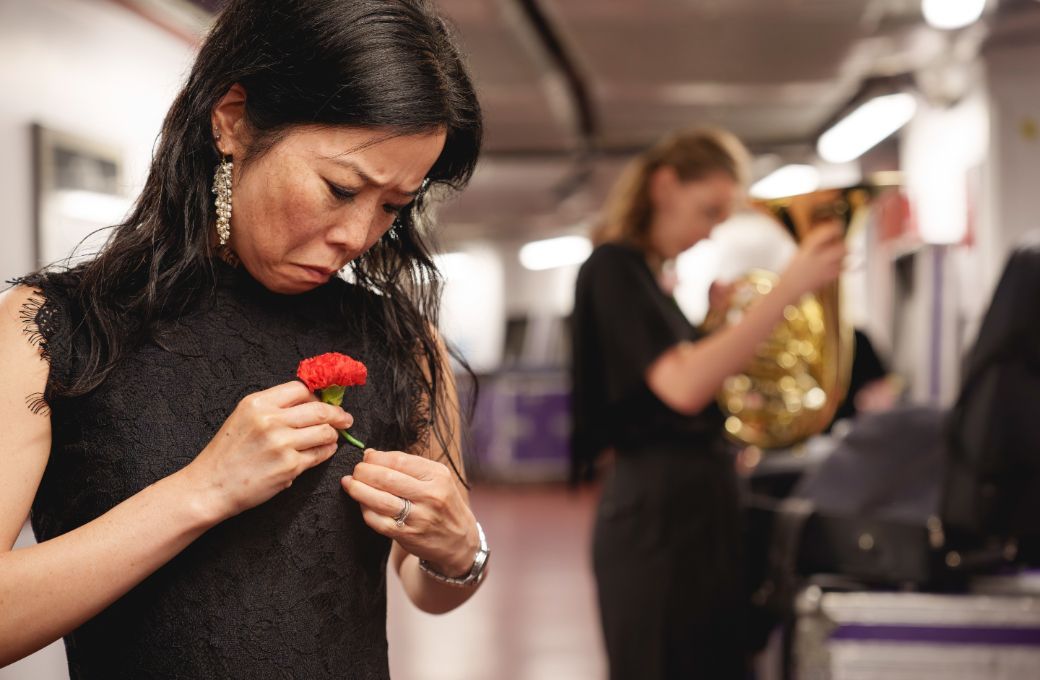Sir Andrew Davis should have conducted this Prom, as Martyn Brabbins pointed out in a well-judged tribute from the podium. With Davis’ death, from leukaemia in April, we lost one of the most complete musicians and unsung conductors of his generation. In years gone by at the BBC Proms, Davis had given first performances or UK premieres of scores by Birtwistle, Carter, Takemitsu and many others. Fifty years ago, he led the annual ritual of Beethoven’s Ninth, as well as a Bach programme from the harpsichord, including the Fifth Brandenburg Concerto. When the musicians of the BBC Symphony Orchestra filed on stage, they wore pink and red buttonholes in memory of their former chief and his harmony of wit and gravitas as master of ceremonies at the Last Night.

Within its opening bars, the Symphony in Three Movements set the tone for much of what was to come: broad, trenchant, charged with tension. This was not the performance Davis would have given, nor the last word on the piece, nor did it need to be. Brabbins himself had judged the sense of occasion as Davis would have done. In the poky wind writing there were both echoes of Petrushka and foretastes of Agon. The broad momentum and gracefully pointed rhythms felt properly “symphonic” in a way we rarely associate with Stravinsky, yet they also opened up unexpected connections to neoclassical Tchaikovsky in the slow movement.
After a protracted platform change – itself something of a throwback to a bygone era – the stage was set for Jacob’s Ladder by Steve Reich, in its UK premiere. Now 90, Reich has evolved a definite “late style”, and this setting of a few lines from the Book of Genesis is a fine example, not nearly so marked by pulse as before. Vibraphone and piano paint a gently glowing backdrop to overlapping scale fragments on a small ensemble of strings and woodwind, both literally and poetically evoking the ladder from earth to heaven in Jacob’s vision. Pairs of solo sopranos and tenors intoned the Hebrew text with cool assurance, in a more restrained account than the European premiere given in Paris a few months ago, once more touched by a sense of the occasion.
A Schumann symphony had initially been scheduled for the second half. Instead, Brabbins conducted two composers especially dear to Davis, capturing something of both his personality and his importance to musical life in England. He loved Tippett’s Midsummer Marriage with an immoderate passion, and Brabbins led a lovingly detailed performance of the Ritual Dances from the opera’s second act. The opening light of dawn broke with Daphnis-like opulence, before beautifully weighted string chords and intricate wind counterpoint reached back to the Stravinsky of the first half. Like Davis, Brabbins grasps the joyfully tangled origin story of this music: English pastoralism, Italian-Baroque impetus, Jungian psychology and more.
To end, the Enigma Variations felt true both to Elgar and to fond memory of Davis: immaculately weighted in texture, mostly leaving deep emotion to the natural expression of the notes, sombre and stirring in Nimrod, drawing threads of music and feeling together through the course of its second half. The BBCSO responded as if “cajoled, caressed and bullied” by Davis himself, in the words of Brabbins’ tribute, and sent off their former chief in fitting style.


